Our share of waste
This post was first published on the La Cordée store blog.
Updated April 6, 2022.
Rivers of plastic in South Korea, mountains of bottled water in the Argentinian pampas and long strips of toilet paper littering my way all over the world. We take sadly bad care of our beautiful planet.
In the past few years, I have crossed 40 countries on my bike. From Europe to the borders of Asia, passing through South America. And hardly a few of these countries were not littered with garbage.
It's infinitely sad to see all those bottles and cans, all those plastic bags, and even those rusty appliances filling ditches, beaches and forests. Even in places where no one lives, it seems that our human race is bent on breaking down the borders of stupidity in order to pollute better.
The roadsides in Laos are constantly covered with countless rubbish.
Legendary pollution
There is an old legend in the immense Argentine pampas. The history of Difunta Correa - the deceased Correa - comes from the name of the mythical character of Deolinda Correa, a woman who died of thirst in the Argentinian desert while wanting to follow her husband, recruited during the civil war in the 19th century. Two hundred years later, his legend is alive and well and we find, almost everywhere on the edge of Chile, Uruguay and especially Argentina, small sanctuaries erected in his honor. At these multiple places, sometimes located a few kilometers from each other, people stop and leave full water bottles to prevent others from dying of thirst in these arid conditions.
In itself, the idea is not far-fetched, except when we note that many of these sanctuaries form real small mountains made up of thousands of plastic bottles.
An ancient tradition in the Argentinian pampas is to accumulate roadside water bottles to prevent dehydration of travelers. While a few would suffice, there are sometimes thousands of them in one place ...
As I cross the country by bike, the daily sight of these unnecessary piles of land infuriates me. I am in front of one of them when a man stops in a car, then literally starts to climb the mountain of water to deposit yet another bottle. I ask him why. He looks at me without answering. Then, when he comes back to my side of the road, I repeat my question. Why? He ignores me again before getting back in his car. I unfortunately lose my patience and cry out to him, in his language, that he is polluting our planet for no reason. His wife lifts her middle finger through his auto window as he accelerates, leaving me alone in the middle of the desert vastness. His bottle and the thousands of others remain there.
I can't understand why we put so much effort into carrying an old oven into nature to get rid of it.
A global problem
My loss of patience with pollution is not sudden. On the contrary, I have been ruminating on it for a long time. The reality behind the licked landscape photos I take is often much dirtier.
In Burma, on the other side of the globe, Tuesday is the day when a large part of the population burns their waste. The sky filled with toxic smoke caused by countless campfires fueled by plastic, rubber, and petroleum, used to aid combustion.
Burma may have temples and an extraordinary history, its landscape is far from always idyllic.
Half of the world's population does not have access regular waste collection. And according to the World Bank, 90% of the waste produced in the poorest countries is thus burned in the open or deposited. in unregulated landfills. In addition to severely damaging the environment, these practices are dangerous to health and can cause small and large-scale accidents.
But waste management is expensive for local governments. It can often eat up 20% to 50% of their budgets. While many people around the world still live without water or electricity, garbage collection is usually not a top priority. Development takes place all the more slowly in regions where the tax system is inefficient or riddled with corruption. And our Western solutions are far from being able to be implemented everywhere in the world. Our large garbage trucks, for example, are built to ride on cobblestone paths and simply cannot be sent over the gravel or mountain roads of developing countries.
After the rain, South Korea's rivers become saturated with plastic and other garbage brought in by streams.
But this is clearly not just a problem of poor countries. It is our developed countries, and in particular cities, that produce more waste. The Netherlands, which nevertheless has an excellent recycling system, throw more than 400 breads per day. We are already producing twice as much solid waste as barely 10 years ago, and with global development it is estimated that this amount will increase from 3,5 million tonnes per day. to more than 6 million tonnes by 2025… per day !
Not just elsewhere
There is also still a serious problem of education. And not just in distant lands.
For example, one might, at first glance, think that throwing away food scraps in nature has only happy consequences. Natural compost, what! But orange and banana peels are not popular with animals. They can take six months to two years to decompose. For toilet paper, even biodegradable, it takes between one to three years. Then, all this time, the landscape is undermined by long white strips moved by the wind.
And I'm not even talking about the decomposition time of aluminum cans (200 years) and plastic bags or bottles (millions of years).
A child plays with scraps in a small village in northern Laos.
A (partly) individual solution
What can we do in the face of so much bad news?
Whether we are at home or traveling, from a rich country or not, we all have a responsibility. And while we wait for the governments of this world to pass laws to better prevent the creation and then the management of waste, it is certainly possible to make individual efforts.
I often have this strong desire to get angry in front of these landscapes of waste and these polluters in action. I feel like yelling at them and throwing their garbage in their faces. I told you without pride one of these times.
So, I instead adopted another, more efficient method. The one where actions speak more than words, however strong they may be.
Chile, although quite developed, is no exception: I often have the impression of driving in open dumps.
I won't change the dumpsites of the world on my own. But on my bike, I always carry a bag of garbage. So, you might as well complete it. On each occasion, I therefore clean the edges of rivers and streets a little. I do the same under every tree I stop near. It's better than nothing. And it gives a certain model to the local population who see me doing it. I often turn heads by collecting garbage in a small village or in front of other tourists, but it opens up the conversation more than it annoys the population.
I recently saw online that a lot of other people are doing the same under the #trash tag. The idea is to take a photo of a natural place to clean before and after.
More specifically, when camping, it is suggested to wash your dishes far from a stream so that the soap, even biodegradable, does not end up there. At home, we can better clean our recycling to avoid contaminating all other recyclable containers.
A Chinese beach filled with pieces of polystyrene.
As the landscape unfolds beneath my wheels, I see that living on a clean planet still seems a long way off and perhaps even inaccessible. But I still prefer to do what I can rather than close my eyes and complain.

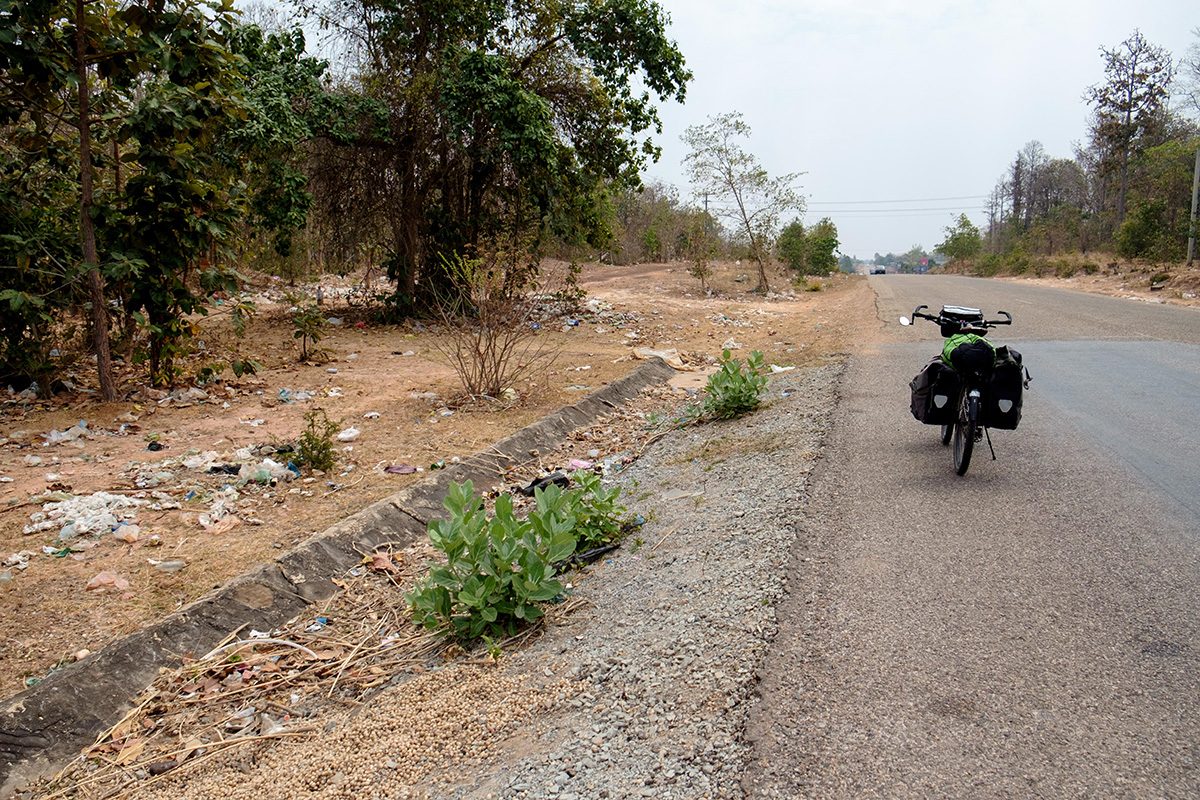
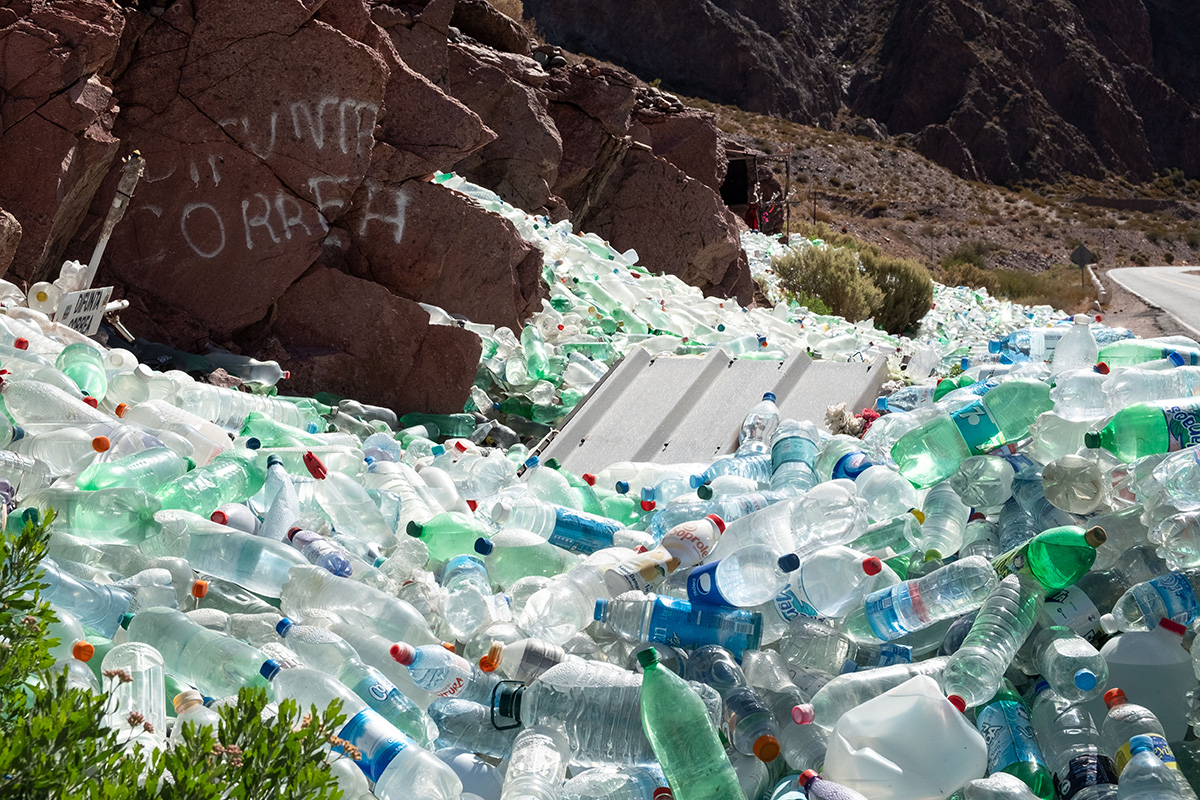
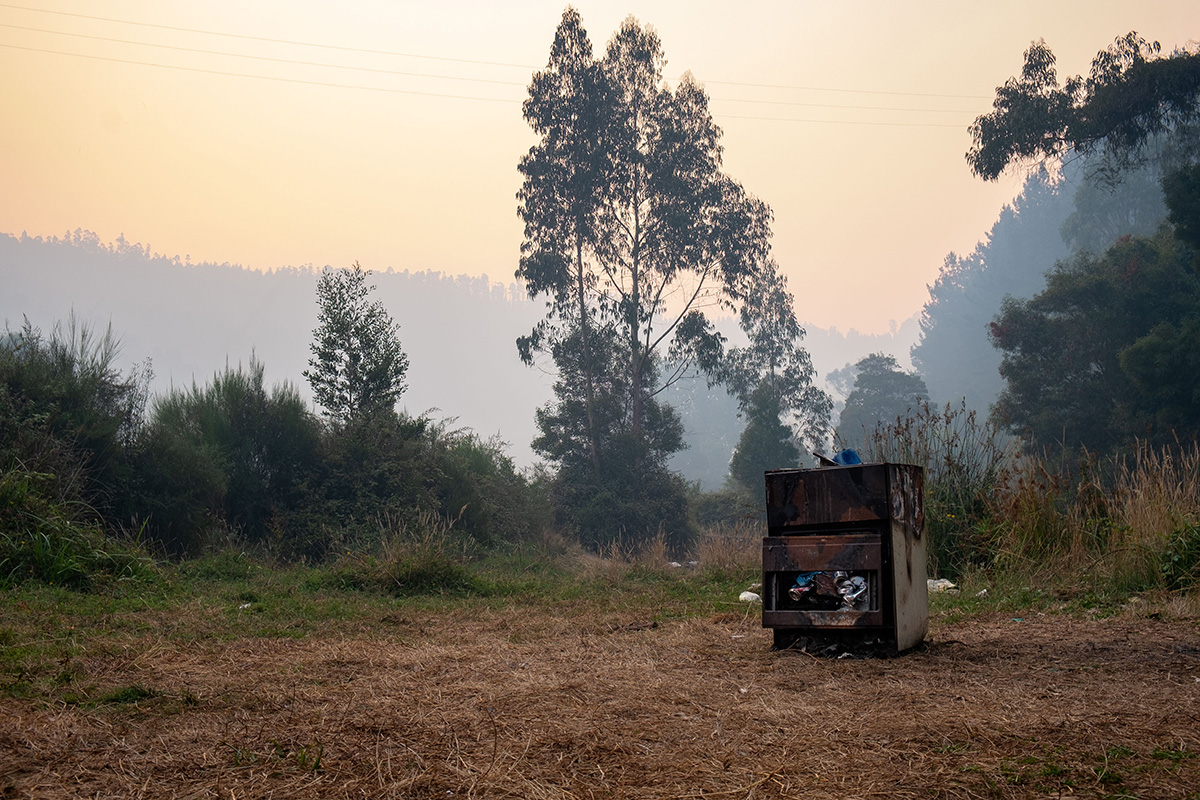
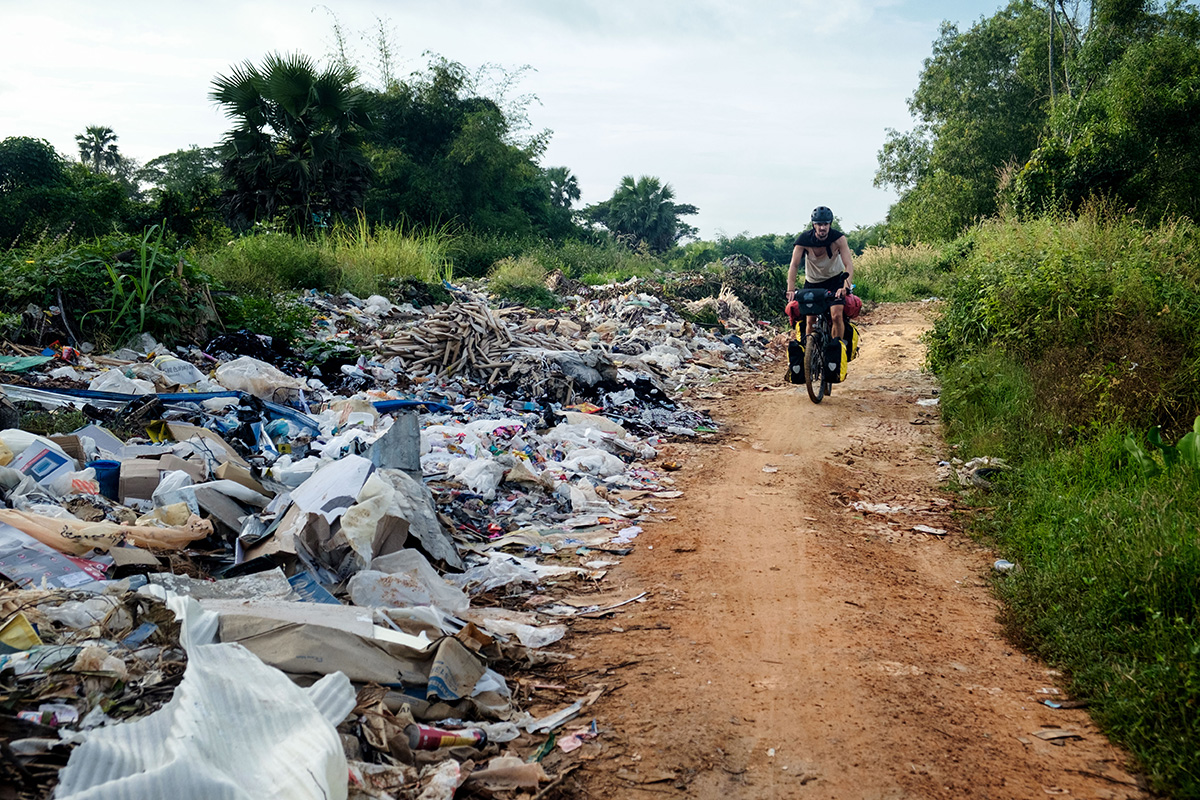
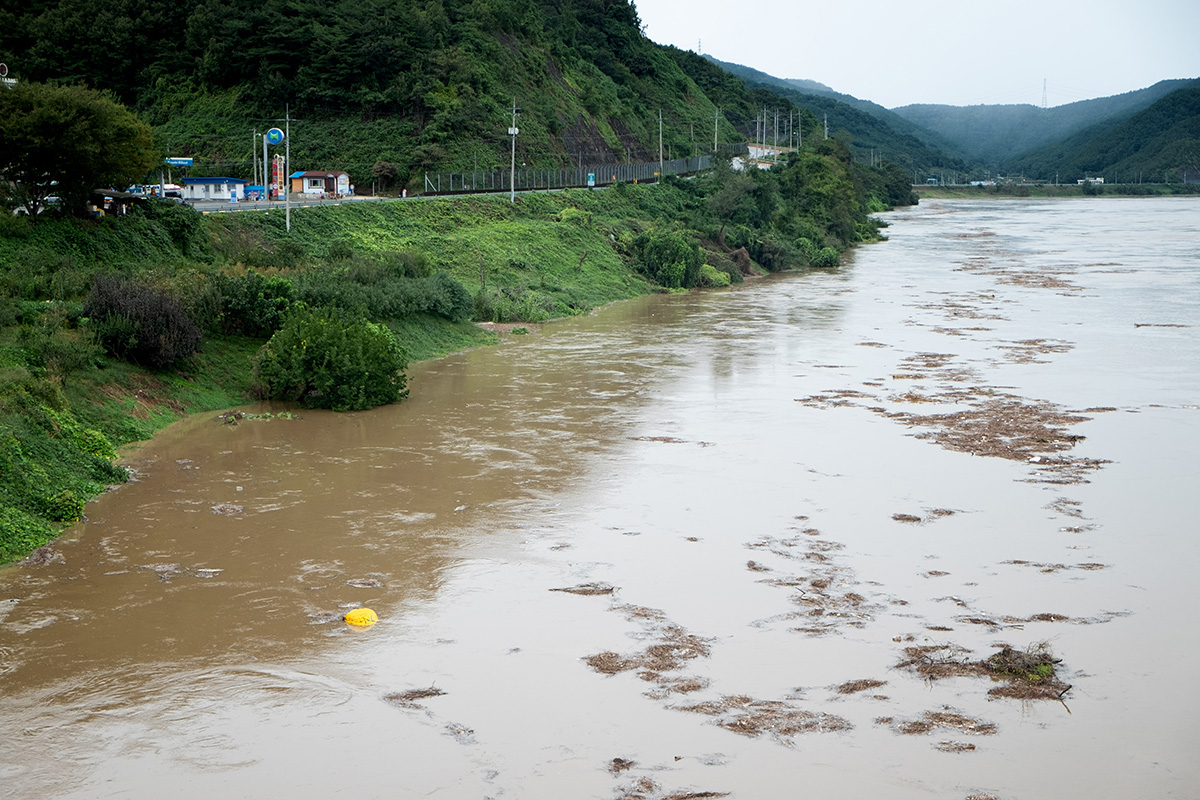
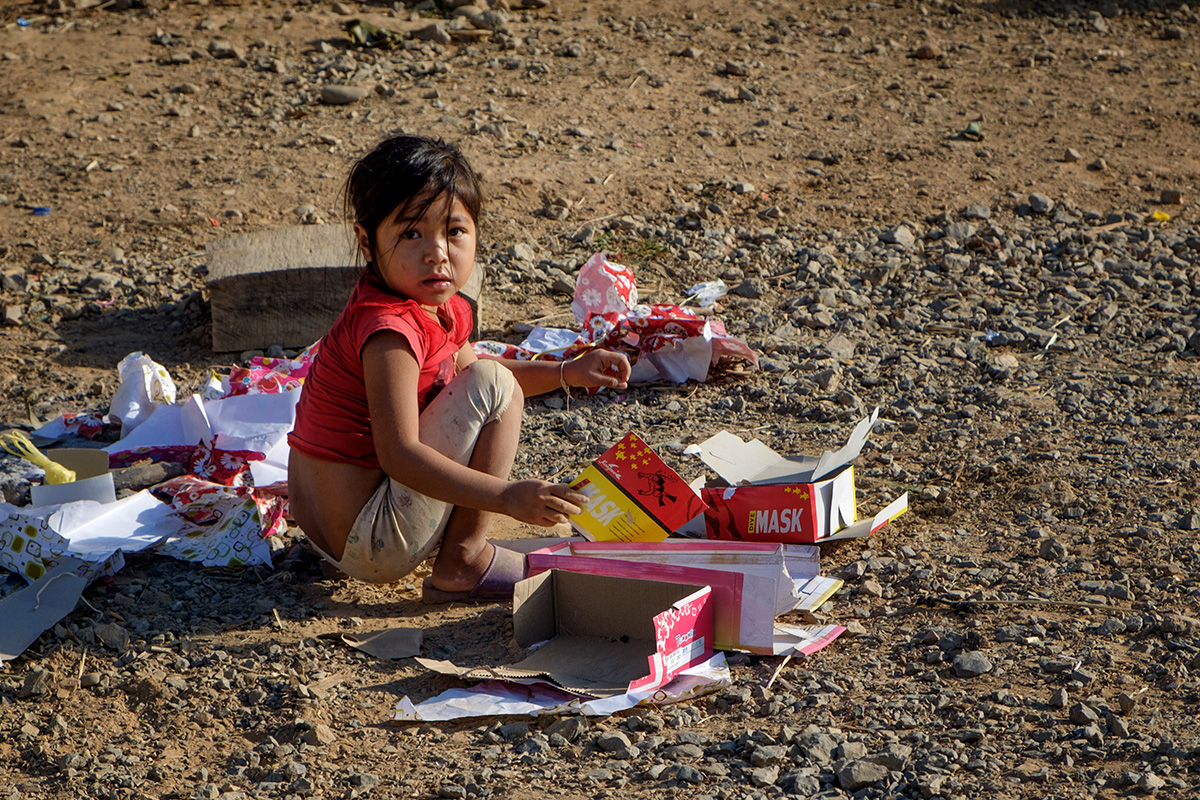
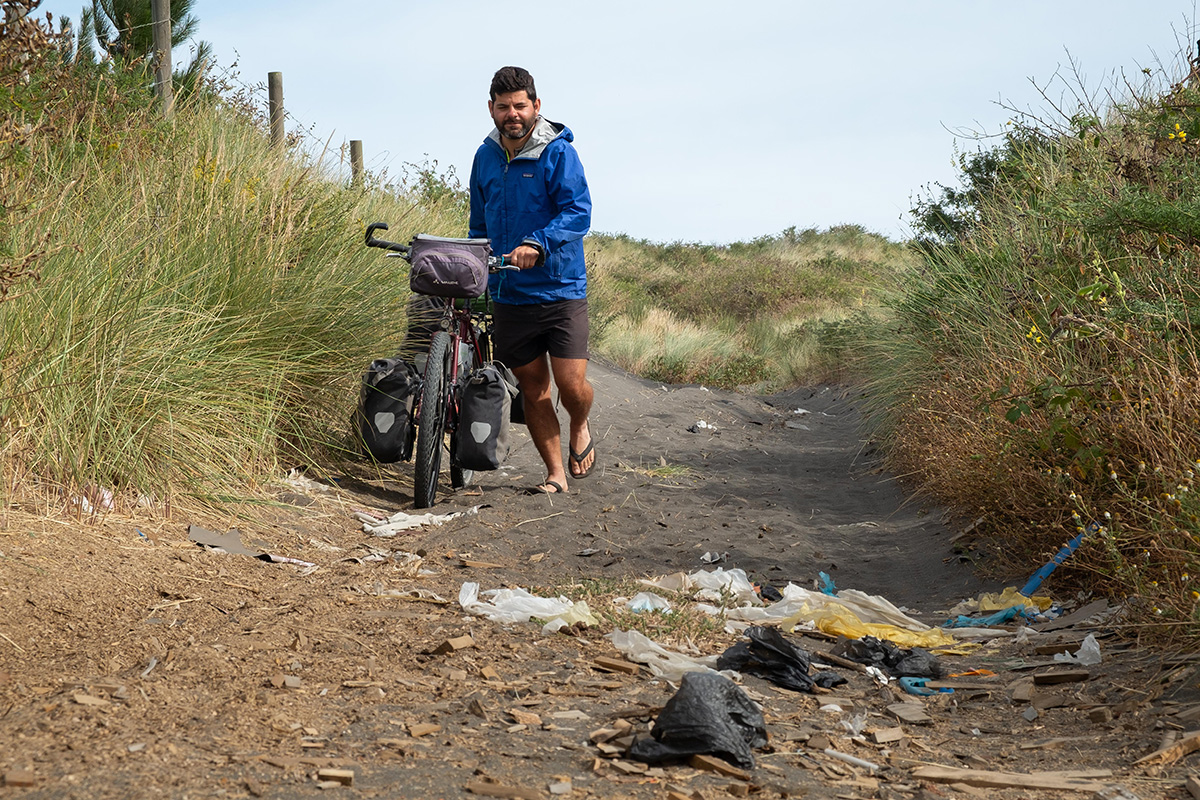
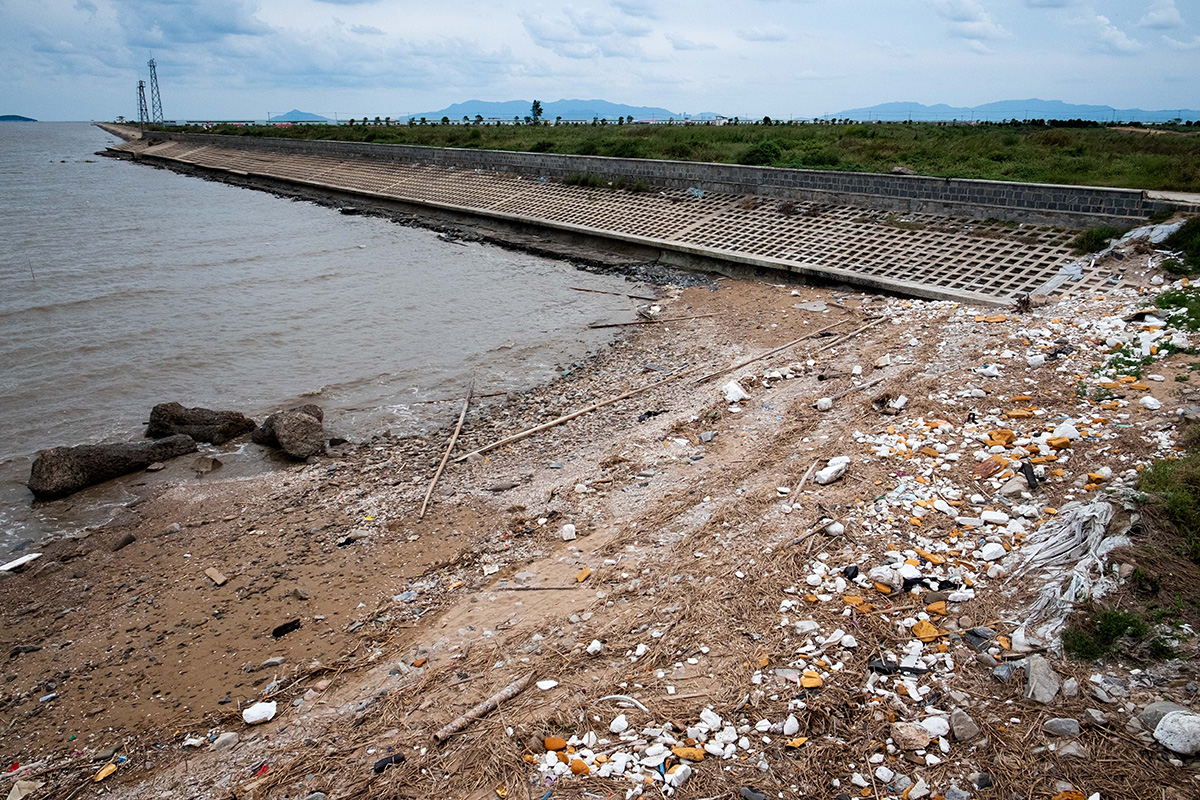









Rivers of plastic in South Korea, mountains of bottled water in the Argentinian pampas and long strips of toilet paper littering my way all over the world. We take sadly bad care of our beautiful planet.